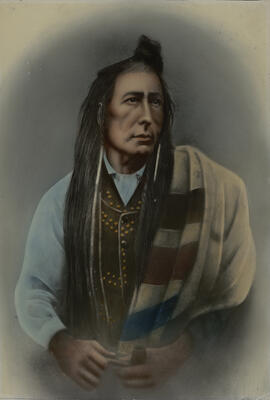This fonds includes materials relating to Patricia Monture’s teaching, research, and professional activities on campus, as well as an extensive collection of materials relating to Indigenous rights, women’s rights, Indigenous women’s rights, the Canadian justice system, and how the Canadian justice system interacts with Aboriginal, female, and Aboriginal female offenders. The papers also explore issues of child welfare and domestic violence. A number of legal documents are included, as are materials relating to Indigenous self-governance, treaties, and the Indian Act. Also included are materials relating to Monture’s involvement in a number of national commissions including the Royal Commission on Aboriginal Peoples, the task force on federally sentenced women, and the task force on the use of solitary confinement in federal prisons. Through Monture’s correspondence, it is possible to get a sense of what it was like working as an Indigenous woman in academia during this period.


